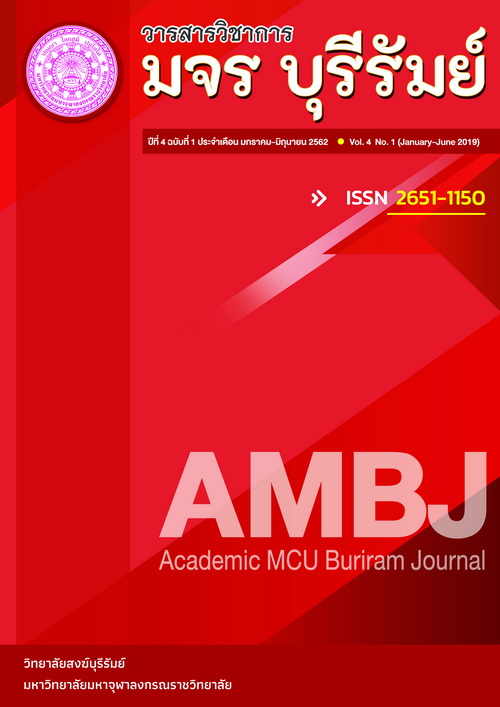The Study of Approach of Elimination of Impurity in Theravada Buddhism
Keywords:
Method, Elimination of Impurity, Theravada BuddhismAbstract
This research article have three objectives of the research: 1) to study the impurity in Theravada Buddhism, 2) to study methods for eliminating impurity in Theravada Buddhism, 3) to study of application of Buddha-dharma for eliminating impurity in Theravada Buddhism. This research is a qualitative study focusing on documentary by collecting information from the Tipitaka, commentary, related documents, and bringing them to study and explain in descriptive terms.
The research found that the evil in Suttanta Pitaka means impurities, sadness, frustration, and extinction, the evil in Vinaya Pitaka means the abuse of the Lord Buddha’s commandment, the evil in Abhidhamma Pitaka means the nature of the mind that is in accordance with the power of defilement has 2 types: external and internal impurity. The penalty for misconduct in the tainted that caused sadness, frustration, depletion and suffering. The things that cause impurities such as anger, hate, jealousy, laziness, boastfulness, illusion, insanity and wrong view. The method of eliminating impurity in order to be happy both in present life and in the further lives is reserving themselves from greed, hate and delusion not appear in mind to be impurity and that will use the principles of the precepts observing and meditation practice for physical, verbal, and mental peace. In the way of applying the principles of Noble Eightfold Paths, the principles of Buddha teaching, the principles of goodness, principles of meditation practice, in order that live a good life with intelligence. The result of elimination of impurity brings living in peace, do not fear that there is someone who violate ourselves. If one passing away from this world, one will reach heaven or the good state of existence eternally.
Downloads
Published
How to Cite
Issue
Section
License
ทัศนะและความคิดเห็นที่ปรากฏในบทความวารสารฉบับนี้ถือเป็นความรับผิดชอบของผู้เขียนบทความนั้น ไม่ถือเป็นทัศนะและความรับผิดชอบของบรรณาธิการ





